|
Here is Part II on using Interval International.
In Part I, I put together a guide on how to use Interval International for Interval Getaways. In this guide, I wanted to put together a guide on how to exchange with Interval International. Signing In In order to get access to either exchanges or Interval Getaways, need you to sign in to the website which is found on the top right hand corner.
As you sign in, you are brought to this screen.
This time, instead of starting with the Getaways, you click on tab "Exchanges". Once you do that, you are brought to this screen.
Once you are hear, you are presented with a similar screen than what is provided with the Interval Getaways.
You can either search by a "single destination", "search all destinations" or by "Resort name, code or use map". As previously mentioned, I generally choose "search all destinations" in order to make sure that all weeks and destinations are shown to me. Interval's search tool is finicky and does not always produce the same results so I try to force the system to show me everything. Dates Unlike Interval Getaways, Interval International allows you to search and book for two years from the date of the search rather than 18 months that the Interval Getaways allow. Again, I try to use the broadest search possible in order to see everything. You can also narrow down the dates if you are looking for a particular week. However, if you are looking for a particular week, it is generally recommended to search for the week before and the week after just in case the system does not show you everything. "Prime" Resorts As I mentioned in the Interval Getaway guide and in previous posts, a great way to search is by using the Resort Codes. Instead of putting in one or two Resort Codes, you can put in a large list of codes for the "best" resorts in Interval International. Here is a post on this which I highly recommend using. Exchanging Everything up to this point is almost exactly the same as search for Interval Getaways. However, once you put in the specifics, the next page brings up the following. Since this is my particular account, you can see my unit on the top, the Hyatt Beach House. You also see various exchanges. You can see that there are two line items for 2018 usage that indicates that it is exchanged and two other line items with no other information. The two items for 2018 usage are two "request first" exchanges. Request Firsts are ongoing exchange requests which are pending but are not confirmed. The system continuously searches based on specifics entered. Here are some more details for the Request First function. This particular screen will likely differ based on the particular type of timeshare you own (points or weeks) but the general exchange function should be the same. Since I own with Hyatt, my weeks are hybrid weeks where I can either use the particular week or exchange it into Hyatt Residence Club points. If I convert it into Hyatt Residence Club points, I can then exchange those Hyatt Residence Club points into Interval International points. Once I click on the "Vacation Exchange", this is the following screen. This is one of the most important screens for exchanging. This is the exchange chart which shows you how many Interval International points are required for a particular exchange. The bigger the unit, the more points required. Also, on the left is the TDI or Travel Demand Index. This is basically low, medium and high demand seasons. For this search, I almost always choose 2 bedrooms for the highest demand time period (1300 points). Again, the reason for this is to force the system to show you everything. Different Exchange Charts For those readers who do not own a Hyatt week, this page will be different. This will either show you the particular week that you own and give you the option to exchange that week, exchange a part of that week, either a 1 bedroom and studio, or provides you with a different exchange chart. For those readers who own other timeshares, please e-mail me ([email protected]) your screen shots of this page so that I an update these guides for multiple different timeshares. The exchange charts are one of the most important features of a timeshare as this shows you exactly what is possible for exchanging. For example, based on the chart above, if you own 870 Hyatt Residence Club points, you can never exchange into a 2 bedroom unit through Interval International. As an aside, Hyatt trades very favorable within Interval International which is why I can get such tremendous value. 1300 points for a Hyatt week is a very low demand week which generally can be very cheap to purchase. While Hyatt's maintenance fees will be somewhat high, a 1300 Hyatt week is a sweet spot between value and usage. With only 1300 Hyatt Residence Club points, you will be severely restricted in trading within the internal Hyatt system where there will be many resorts where you cannot trade into a 2 bedroom unit for a week (requires more points) but you can do so within Interval International. In order to see how various timeshare trade within Interval International, you should review the basic guides that I have put together here. Also, here is a good overview on how various programs exchange within Interval International. Searching Inventory Inventory for Interval Getaways and exchanges are completely different. Even though a week may be available for purchase, it does not mean that it will be available for exchange. When you click on the amount of points you desire to use, you are brought to this screen. As with before, you can put in your search terms and see what exchange inventory is available. Similar to Interval Getaways, the results show you the required amount of points required for the specific size of unit and time period. For example, here is the current availabilty for St. Kitts and Nevis. As you can see, there are various size rooms available and the amount of points required for the size of unit and particular season. Again, depending on what timeshare you own, the exchanges will be different and amount of points required will be different. If you own a week based timeshare, it will only show you the units which you can exchange on a 1 to 1 basis. For example a 1 bedroom to a 1 bedroom or a 1 bedroom to a studio. Booking the Exchange Once you find the unit you want to exchange into, you click the "Exchange" button which will walk you through additional screens.
This shows you what you are relinquishing for this particular exchange. In this case, it is 1,100 Hyatt Residence Club points.
Additionally, it shows you the details of the room and amenities of the resort. Make sure to read the room description carefully as you want to make sure what you are getting. Additional Disclosures On the following screen are more disclosures. Make sure to read these as there can be fees required or renovations occurring. This is the place where these types of items are disclosed.
E-Plus and Guest Certificates Once you get to the next screen, it asks you whether you want E-Plus and/or a Guest Certificate. E-Plus is fantastic and highly recommended. For those of you who do not know, E-Plus allows you to re-book your confirmed exchanged week for up to 3 times with no additional fee. Here are more details of this program. If you are allowing others to use your week, they need to be on the reservation. Otherwise, problems can occur upon checking in. If you have Interval Platinum, guest certificates are free. Otherwise, it is a $59 fee. 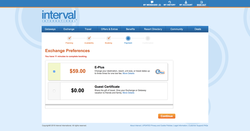
Following this screen, you will be presented with payment options.
The exchange fee is now $199 per week. Make sure to use the right credit card such as the Chase Sapphire Preferred or the Chase Ink Business where you will receive 2x points with the Chase Sapphire Preferred or 3x points with the Chase Ink Business as these exchange fees code as travel. Conclusion Exchanging should be fairly straightforward but the key is to understand how your particular timeshare trades through Interval International. Make sure to study the various programs and see how the exchange in the external exchanges. I find that Hyatt trades very favorably for me so I can get a lot of value for my one week by turning my one week into almost 5 weeks of vacation. Make sure to add some comments below in case I missed anything!
As promised, here is the third part of a multiple part series on how to purchase a timeshare on the resale market.
Part 1, dealing with finding the specific timeshare, is found here. Part 2, dealing with contracting is found here. For Part III, the final part, I wanted to go through some various due diligence items that you need to be aware of. While you should definitely do due diligence on the particular timeshare that you are purchasing before contracting, once you have an executed contract, you need to make sure that you know exactly what you are buying before you close. Otherwise, you can end up with something that you didn't realize or worse, undisclosed debt. Estoppel Certificate I have discussed this item before but will do so again in order to have a complete guide. An estoppel certificate is a letter drafted by the timeshare company or timeshare manager, in response to a buyers request, which states the specifics of the timeshare. The specifics should include the particular week that you are purchasing and if it is a points based program or hybrid program, the amount of points allocated for that week. It should also state the current amount of maintenance fees for that particular timeshare and a statement that all past due maintenance fees, special assessments or other dues have been paid in full. It will also state whether there is a mortgage with the timeshare that would need to be paid off before any transfer. As you can see, the estoppel certificate includes some extremely important items. While the seller may state certain things, the estoppel certificate is the authoritative document that confirms what you are buying. Read it carefully and make sure that there are no surprises. Right of First Refusal Again, I have written about the right of first refusal before but here is some brief information on the subject again. The right of first refusal provides that the original timeshare company must be provided the opportunity to purchase the timeshare at the proposed price that the seller is offering the timeshare before a sale can be completed. The timeshare company can either elect to exercise its rights and purchase the timeshare from the seller for the same terms and price or waive its right and the buyer and seller can proceed with the transaction. The timeshare companies claim that the right of first refusal is generally included in order to maintain a floor for secondary prices. This is partially true but I think that the real reason is for the timeshare companies to control the secondary market. As I wrote about above, there are certain strategies that you should use before you submit the right of first refusal. I lost a couple of good timeshares when the timeshare company exercised their right and purchased the timeshare for almost nothing likely selling it immediately for a tremendous amount more. Escrow An escrow account is generally an account held by an independent third party where the buyer will deposit the purchase price. Only when the escrow agent receives all the documents and confirms that everything has been executed and filled out properly, will the escrow agent release funds to the Seller. The escrow agent will also handle disbursements to any broker or other third party that may get paid out of the sales proceeds. An escrow account is meant to protect both the buyer and seller. It is suppose to be an independent party so neither the buyer or seller will be able to manipulate any of the funds. It also highly protects the buyer so that the funds deposited will only be released upon confirming that everything is in order and the actual deed for the timeshare is filed. Timeshares are notorious for having a lot of fraud and scams so an escrow agent is a very good idea. A very good strategy to use is to use a credit card to deposit the funds in the escrow account. Most companies or sellers will allow you to use a credit card to purchase the timeshare. This does a couple of important things. (1) You can get credit card points! I am a huge fan of credit card points and any chance I get to obtain them, I do, If you are lucky, it may post as a travel expense which is generally a bonus category in most of the lucrative credit cards (Chase Sapphire Reserve, Citi Premier, Chase Ink Business, etc.) (2) It gives you another layer of protection. If anything occurs with the purchase, you have your credit card protections to back you up. If you are mainly going to use a credit card for protection purposes, I highly recommend using American Express. American Express is notoriously customer friendly, vendor adverse, and anytime I have ever had an issue with a vendor and filed a claim, it has been ruled in my favor. Deed A timeshare is considered real property so in order to fully document everything, there needs to be an actual deed completed and notarized that is filed with the county where the timeshare is located. There are many different types of deeds but the ones that you will potentially run into with timeshare purchases are quitclaim deeds or special warranty deeds. A quitclaim deed is the least protective deed. The seller is essentially transferring whatever interest the seller has in the particular timeshare. The seller is not providing any type of warranty that they own anything or that others may have any interest in the particular timeshare. A special warranty deed is much better than a quit claim deed in that the seller is representing and warranting that the Seller owns the particular interest being transferred and they are unaware of any other issues or claims that have occurred during the time that they owned it. The best type of deed is the general warranty deed which provides the same protections as the special warranty deed but the seller warrants that there are no claims relating to the time period before the seller acquired the interest. Points based timeshares may be slightly different depending on how it is structured but still likely require some public record filing. Most of the points based timeshares are structured as a Land Trust where the timeshare company sells interests in the Land Trust which is given to you as points. The owners of the Land Trust still need to be disclosed in the public records through deeds. Hybrid systems, where you own a week and you can convert that week into points, will require an actual deed. Account Transfers Once the deed is transferred to your name, you are technically the owner the timeshare. However, the timeshare company will need a copy of the filed deed in order to change the name of their account and begin to give you access to using the week and/or points. Timing can differ based on the timeshare company but for me, with Hyatt, it took about 2 weeks after the deed was recorded for an account to be set up in my name where I could actually book weeks and use my points. I would say that this a reasonable amount of time for most timeshare companies to handle the transfer process. Closing Services Buying and selling a timeshare can be a complicated process. There are legal agreements to complete, multiple parties to contact and filings in the public records. Despite being familiar with the process, I have always used a closing company to purchase the timeshare. They make the entire process much easier and know exactly what to do. There are various timeshare closing companies out there so you need to do you homework. I have used Greatway Services through my purchase with Sumday Vacations. If you end up purchasing a timeshare through a company, they will usually handle the closing or have some affiliate do so. This should generally be fine but make sure you understand the fees before agreeing to anything. Here is a link to some reviews and comments on various timeshare related companies. This is a good place to start looking for reputable companies to assist with any timeshare purchase. Also, when you negotiate the purchase agreement, you should be very clear on who is responsible for the closing costs. They can run in the thousands of dollars so make sure to negotiate this point up front! Conclusion Purchasing a timeshare is almost identical to purchasing a house. While the contracts and documents will be slightly different, it is a real estate transaction and it can get complicated fast. Purchasing a timeshare on the resale market can save you an absolute bundle. Prices will differ depending on the timeshare that you are purchasing, but I would venture to say that the resale prices are somewhere around 50-99% of the original purchase price. Buying resale is a great way to get a timeshare for a low initial fee. If you purchase low enough and you understand what timeshare you want and what strategies you will use to maximize its use, you can really get some great vacations for very little money. If you are considering a timeshare purchase, I highly recommend sticking with a name brand timeshare. They tend to exchange the best, be the most desirable properties and have some secondary market value so you can sell it down the road, maybe not for a profit, but at least you can transfer it to someone else and get out of paying the maintenance fees. In addition, if you are purchasing a timeshare, I would highly recommend using a closing company. They are simply well versed in timeshare transfers and will save you hours of frustration and could potentially save you from purchasing something you didn't expect. Please make sure to add anything that I may missed in these resale purchase guides! Please also add any companies that you have used successfully! I hope you find these guides useful. I'll compile these into one complete guide after comments are done to make sure that everything is included! Pursuant to a question from one of my readers, I am putting together a basic guide on how to use Interval International for exchanging and obtaining Interval Getaways. Due to the length of the post, I will split this into two parts, Interval Getaways and Exchanging. As I state many times, I predominantly use Interval International in order to exchange my timeshare into other timeshares as I find that I can maximize my timeshare and can get some great weeks. Signing In While there is potentially a back door to get access to RCI, Interval International does do a check to ensure that you own the timeshare that you say you own. Without a membership, you cannot get access. Once you have an account, you can go to their homepage and sign in on the top right hand corner. Once you are signed in, you are brought to the main page. It defaults to Getways as shown below. Search Getaways Since Interval Getaways comes up first, lets go through how to search for Interval Getaways. For those who don't know, Interval Getaways are weeks which you can reserve for cash instead of exchanging your timeshare week or timeshare points. There can be some tremendous deals here and I always pursue the availability. You can read more about Interval Getaways here and here. As you can see in the search box, it gives you three options: Single Destination Search All Destinations Resort Name, Code or Use Map Most of the time, I will simply use "Search all Destinations" even if know where are I am looking. Interval's search tool has a lot to be desired and I never know if the system is really picking up all available weeks. Therefore, I try to do the broadest search possible in order to make sure that everything available is being shown to me. The other great option is to use the "Resort Name, Code or Use Map". As I discussed in this post, you can insert numerous resort codes in this field for the "best" available timeshares and see what is available. Time Period Interval International now lets you search about 18 months in the future. It used to be 12 months but they have changed it so you can see availability farther into the future. My general tactic will again to do the broadest search possible and generally search for the entire time period even if I am just looking for a particular time period. The reason I do this is to make sure that the system picks up everything and also just to see what is available. For example, if I want to go to St. Johns (a notoriously difficult spot to trade into) and I do a broad search for 18 months and St. Johns come ups in the destinations, I want to see what is available as I may plan a trip around that particular availability. Othertimes, for holiday weeks, I try to do a specific search for that week to see what is currently available and try to plan a vacation based on that availability (if the price is right). For this guide, I did the broadest search possible, all destinations and all time periods. As you can see, there are A LOT of destinations that come up. Each destination is a hyperlink so you can click on the various destinations in order to see what is available. Since Hawaii is always a popular destination, I chose Kauai, Hawaii in the search above. Here are the results.
You can see that there are some good weeks. You can expand the list by clicking the plus symbol in the left hand corner on each resort page. Also, make sure you notice the amount of pages for the results. In the bottom right hand corner, it will have the page numbers and many times there will have multiple pages. Make sure to check the other pages!
Also, make sure you notice the symbols underneath the dates. These symbols indicate the size of the room, the amount of people that can sleep in private, the total amount of people that can fit in the unit and whether it has a full kitchen, no kitchen or limited kitchen. For example, in this example, below, the top one is for a 1 bedroom unit with a limited kitchen. It can sleep a total of 4 people both in total and in private. The one below is a 2 bedroom with a full kitchen. It can sleep 6 people in private and a total of 8 people (this generally indicates that it has a pull out sofa in the living room). The third one is a studio unit with no kitchen. It can sleep 2 privately but can accommodate up to 4 people. For this example, I chose the Marriott Kauai Beach Club. You click on "Book Now" and it brings you to this page.
Once you click through, Interval provides more details on the unit and the various amenities. Make sure to read this carefully to avoid any surprises.
Also, you should note that when you click "Book Now" it takes the particular unit out of their inventory for you for 20 minutes so you need to complete the transaction within that time period. If you click off of it or let it time out, and you then decide you want it, the new search will not bring it up for about 20 minutes. A workaround is to go through the same search process and click on any other unit like you were going to book. Once you do that, the system assumes that you are no longer interested in the previous unit and it will release it back into inventory. However, this does not always work especially with prime weeks. It can simply be that someone completed the transaction before you or took it out of inventory as you released it. When you click through the next link, it provide you more details on the potential extra charges associated with the week. *While I was doing this example, my search timed out and the Marriott week disappeared from inventory. The next screen shots are from different units but the information is still accurate. If you see a good week, BOOK IT as inventory changes by the second.
Again, make sure to read this page. Some resorts have multiple additional charges that you should be aware of. Additionally, for all-inclusive resorts, the charges can be in the thousands of dollars. Read about those types of weeks here.
Once you click again, you are brought to the next screen concerning Guest Certificates. Guest Certificates normally cost $59 per reservation so that you can put the name of your guest on the reservation. If you are an Interval Platinum member, they are free which is why it is showing up as $0.00 for my booking. The next page is the actual booking page. It shows you the actual cost for the entire week including taxes.
On the next page, it is the payment page. It also offers you the ability to obtain travel insurance. I'll have to do a follow up post on travel insurance but I never generally opt in. However, Interval Getaways are NON-REFUNDABLE and NON-CANCELLABLE. This is strictly enforced. Therefore, regardless of what comes up, you either take the trip or lose the money. Therefore, travel insurance may actually make sense in this situation but I'll dig into this deeper.
Conclusion Interval Getaways can be fantastic deals. I have reserved weeks for under $200. These are generally low season weeks but $200 for a week can be fantastic. Other times, the cost of these Getaways are so affordable that I will reserve it and only use 1 or 2 days as the comparable hotel prices are more expensive than booking an entire week. Inventory changes by the second so search often. Make sure to also use Interval Intervals app. I wrote about it here and it has been a lifesaver! Is there anything that is missing from this guide? Make sure to leave your comments below.
As promised, here is the second part of a multiple part series on how to purchase a timeshare on the resale market.
Part 1, dealing with finding the specific timeshare, is found here. Contracting In this post, I wanted to go through the contracting process. It is very important that all terms and conditions of the transaction are put down in writing and signed by both the buyer and seller. Once you locate the particular timeshare that you want and both the buyer and seller have agreed upon the price, you should move to the contract stage. In my particular timeshare purchase, upon agreeing on the price, the Seller asked me for the following information: 1. Legal Names(s) FULL MIDDLE NAMES REQUIRED FOR HAWAII 2. Are you taking title as single person, husband/wife, married as sole owner or joint tenancy. 3. Mailing address 4. Your county of residence 5. Daytime phone number 6. Home phone number 7. SEPARATE e-mail address for EACH INDIVIDUAL TO BE LISTED ON OWNERSHIP 8. Are you a current owner?_____________ Member # __________ 9. Copies of photo ids for each individual to be listed on ownership 10. Recent or current bankruptcy or foreclosure? _______ 11. If title is to be taken in a Trust, LLC, or Corporation you must provide a copy of the established documents. Requested Information The information above was requested in order to properly fill out the Purchase Agreement. It is good practice for the Buyer to provide this information for the Seller as the Seller will generally complete the Purchase Agreement for you to sign. As you can see, there are personal details that will be required to complete the timeshare purchase so there has to be some level of trust or confidence in the Seller. It is generally recommended to deal with a reputable company for a timeshare purchase. There are too many scams out there concerning timeshares and financial transactions is general so be careful and do your research before providing this information or transferring funds. Do some research on the Seller before doing anything. As previously discussed, I used Sumday Vacations and had a good experience but there are many reputable companies out there. Purchase Individually or through an Entity? One important item to consider before the contracting stage is the way that you will hold title to your timeshare. This can be done individually, as husband and wife or through a legal entity. The legal entity can be in multiple forms but generally a limited liability company (LLC) or a Trust can be a good way to hold title. This is NOT legal advice but the benefits of holding title in a legal entity is that you are able to transfer ownership of that legal entity without having to inform the timeshare company / developer. For example, if I bought my timeshare through a legal entity, ABC LLC, and I then wanted to transfer it to my children, I can do so by selling or transferring the LLC. You would have to inform the developer of a potential name change on the account but this should generally avoid any transfer fees that the timeshare developer likely charges for transfer. Also, the other potential benefit to holding title in a legal entity is to have multiple people associated with the entity. For example, if you are a family of four, you can have all 4 family members as owners of the legal entity and therefore, can make reservations of its behalf. If the parents own a timeshare and wanted to allow your children to use it without you being there, this would generally require a guest certificate which generally costs money. If all family members are owners of the timeshare through the legal entity, guest certificates will be avoided. The other consideration is liability. One of the downsides to timeshare ownership is that the timeshare will always have maintenance fees associated with it. Those never end and generally will continue to increase year after year. In the event that you cannot afford to pay those and you go into default, the developer will go after the legal entity and not you personally. While this is technically true, the individual(s) associated with the legal entity will likely be dragged into any legal action but it does provide an additional barrier between you and the timeshare company / developer. Although I am not positive, it is also possible that if the legal entity defaulted and an action instituted against it for non-payment, when you lose or default (extremely likely), the developer will not be able to report the individual to the credit bureaus where it would significantly hurt your credit score. I'll have to do a more detailed post of defaulting on timeshare fees but generally, it is NOT RECOMMENDED AT ALL, regardless of how you own it. The timeshare agreement is generally rock solid and the timeshare company / developer will likely institute proceedings to foreclose on the timeshare and it will be time consuming, costly and distracting. Overall, purchasing through an entity can be a smart decision. There are some upfront costs and ongoing filing requirements but it can save you headaches down the road when you want to transfer it and save you some fees depending on how you intend to use it. Contract Once you decide on how you want to hold title to your timeshare, you will need to execute a Purchase Agreement. I have attached a template of one that I have used in the past. The above is a decent agreement that you can use. It is not the best but the key is to get the material terms on paper. As you can see, the above contracts makes mention of a Florida statute so if the timeshare is located in another jurisdiction, that should either be removed or replaced with the applicable statute of the jurisdiction where the timeshare is located. Maintenance Fees Make sure that the agreement specifies the amount of maintenance fees per year and if there are any maintenance fees that are past due. You should also mention who will be responsible for what during the contract phase. As previously discussed, when I purchased my timeshare in Key West, while we were in the contracting phase, Hurricane Irma came through and caused significant damage to the resort as well as the entire area. If a special assessment was done during this time, it was important to spell out who would be responsible for it. Conclusion In Part III of this series, I will go through some more details on the process following the executed contract. Once the contract is completed, there are additional items to complete including making a deposit or depositing the purchase price in escrow, documentation requesting an estoppel certificate, going through the right of first refusal (if applicable) and getting a deed. In that part of the series, I will also discuss the pros and cons of using a closing company to assist in that process. Overall, once you have located the particular timeshare that you want and agreed upon a price with a seller, the above contract can be used to negotiate the specific terms of the transfer. This should explain if there are closing costs and if so, who will be responsible for it, who should be responsible for maintenance fees either currently due or which could be due during the transfer process, who is responsible for any special assessments which either occur or which are assessed during the transfer as well as whether an entity or you individually will hold title to the timeshare. Many people do purchase timeshares without the assistance of attorneys but it could be a good use of time of money to hire an attorney to review some of the documentation before committing to signing a Purchase Agreement. Purchasing a timeshare is almost the same as purchasing a home as the documentation is almost the same. Stay tuned for Part III! Make sure to comment below with any thoughts or comments?
The other day I was briefly talking to someone about my blog and they immediately indicated that timeshares are horrible and couldn't fathom why someone would actually own one and felt sorry for someone that actually purchased one.
I wasn't surprised by their reaction as I would say that the vast majority of the population has the same view. Many people know someone who purchased a timeshare for an exorbitant price, can never trade into the destination during the time period that they want, doesn't use it and can't sell it. Unfortunately, this is a common story which is why I know that a blog like mine is absolutely necessary to avoid these types of stories and begin telling stories like mine. As I stated before, one of the best ways that I can show readers that timeshare ownership is worthwhile is to show readers how I am using my timeshares and the incredible (sometimes ridiculous) values that I am able to receive. In case you do not read this blog often, I currently own two weeks at the Hyatt Residence Club in Key West, Florida. By exchanging these weeks into points and exchanging those points with Interval International, I got tremendous value. Here is a look at some of my upcoming trips. Economics of Exchanging As I have discused before, here is some quick math to show you the approximate cost of these upcoming trips. Ignoring the initial cost of these weeks, I pay about $1200 per week in maintenance fees for 2,000 Hyatt Residence Club points per week. Therefore, for $2,400, I receive 4,000 Hyatt Residence Club Points. Therefore, for each point I receive, I pay $0.06 cents. Additionally, since I predominantly use my points to exchange through Interval International, the exchange fee is now $199 per exchange. Upcoming Trips Resort Villas at Welk Resorts (San Diego, California) The next timeshare trip that I booked will be at the Resort Villas at Welk Resorts during Thanksgiving. I was able to receive a 2 bedroom unit at the resort over the Thanksgiving holiday. This resort is located close to San Diego, California and close to Legoland, the key driving force behind getting this unit. Cost in Points: 1,300 Cost in Dollars: (1,300 x $0.06) $780 Exchange Fee: $199 Cost per Night: ($780 + $199) / 7: About $140 per night. While this is probably not the absolute steal that I would expect, $140 per night for a 2 bedroom unit during Thanksgiving Week in a high quality resort isn't bad. However, I generally try to do much better with my values but I can't say that this is a bad deal. As a comparison, the resort is offering the same size unit for the same time period for about $400 per night representing a 65% discount on the retail price. Marriott Maui Ocean Club Maui, Hawaii The next timeshare trip planned is in Maui, Hawaii. As I did last year, we are heading there for the Christmas holiday. You can read about my "timeshare fail" here. This year, while I still am attempting to get Christmas week (extremely difficult), we were able to get into the Marriott Ocean Club for the week before Christmas and use points for the other week at the Andaz Maui (awesome resort). We were able to reserve a 1 bedroom for this week. Cost in Points: 870 Cost in Dollars: (870 x $0.06) $522 Exchange Fee: $199 Cost per Night: ($522 + $199) / 7: About $103 per night. As a comparison, the resort is offering the same size unit for the same time period for about $538 per night representing over an 80% discount on the retail price. Not too shabby. Westgate Park City in Park City, Utah during Sundance Film Festival The next timeshare trip is scheduled for Park City, Utah. I am a huge fan of Park City as it is definitely my favorite ski destination. This year I was able to score a super prime week during the Sundance Film Festival which occurs during the third week of January. I was able to get a one bedroom unit at the Westgate Park City. Cost in Points: 870 Cost in Dollars: (870 x $0.06) $522 Exchange Fee: $199 Cost per Night: ($522 + $199) / 7: About $103 per night. As a comparison, the resort is offering the same size unit for the same time period for about $647 per night representing over an 84% discount on the retail price. Sweet! Marriott Timber Lodge in Lake Tahoe The following timeshare trip is in Lake Tahoe during ski season. I was able to grab a prime ski week for the last week of February in a Studio Unit. Hopefully, this will be a good ski season as Lake Tahoe's conditions vary year to year. Cost in Points: 430 Cost in Dollars: (430 x $0.06) $258 Exchange Fee: $199 Cost per Night: ($258+$199) / 7: About $65 per night. As a comparison, the resort is offering the same size unit for the same time period for about $199 per night representing over an 67% discount on the retail price. Conclusion: These are my current outstanding trips planned but already have plenty of other requests pending for other destinations. As you can see, the discounts from the retail rates are completely ridiculous. Just in these four trips, the discounts range from 65% to over 84% based on a comparison of the going rates. As I say over and over again, timeshares are not for everyone but they are far from being a scam. The key is to learn the system and maximize their use. I would never be able to afford many of the trip above if it was not for timeshares. Even if I could afford it, I wouldn't want to spend those retail costs for these types of trips. There are better ways to travel well, cheap and in luxury and timeshares can be one of them! Timeshares simply give me the access to more vacations at reasonable rates. It is complicated but doable and the savings can be significant! What trips do you have planned? Make sure to leave comments below.
It been a long time of promises but here is part one of promised guide on buying a resale timeshare. In this post, I will give you some good spots to begin your search for a timeshare purchase on the resale market.
Finding the Timeshare The key to maximizing timeshare ownership is to purchase the right timeshare for the right price. If the initial upfront price makes sense, the maintenance fees are reasonable and you fully understand the internally trading aspects of a timeshare as well as as the trading aspects of the affiliated exchange company (RCI or Interval International), timeshare ownership can actually be fantastic. As I continually try to show my readers, I get tremendous value out of my timeshares and have been able to take luxurious trips to expensive destinations for a fraction of the cost of nightly hotel rentals. Once you fully review the various programs and know what particular program that you want to purchase, you can start the search process for the particular timeshare. A good spot for the overview of some of the major program are here. As I state over and over, the timeshare programs are extremely complicated so you need to know what you want to buy before actually buying it and how you are going to use it. If you generally take 3 night trips, many programs will be a very bad fit for you as a lot of timeshares / exchanges only allow 7 day usage so you would have to let 4 days go to waste. Some programs allow for as little as one night usage so you need to do your homework and find the right fit for your vacation style. For example, if you want a Marriott property, you need to know whether you want Marriott Destination Club Points (point program) or a week at a specific resort in the legacy program. You need to understand the differences between them and the restrictions. Points are more flexible and allow for 1 night usage whereas the legacy program generally only allows you 7 night exchanges. However, points are much more expensive and can be difficult to find on the resale market. If you know what program you want to purchase and have a good timeshare strategy going into the purchase. (read about various timeshare strategies here), you can start looking for the desired timeshare. One thing to note as you begin your searches. The timeshare resale prices vary considerably. It is very hard to determine the actual fair market cost for a timeshare since there are so many resales and each one can be different even if associated with the same major company. Just because someone is offering a timeshare at a particular price does not mean that it is the correct price to purchase it at. eBay Believe it or not, a fantastic source for finding timeshares is eBay. eBay is the ultimate marketplace for almost everything and they have a constant mix of all types of timeshares being offered. As with everything on eBay, inventory fluctuates so I would constantly look at eBay and see what people are offering and the prices. However, just remember that anyone can offer anything at any price so just because someone is offering a timeshare at a particular price does not mean that it will sell or that is actually worth that amount. Take a look at this post for details on how to see the actual selling prices which is key to understanding the real value. When you start your search on eBay, you will come across various various types of sellers. Some will be individuals but a lot of them will be companies specializing in timeshare resales. Generally, you can locate the timeshare companies website based on the user name they use on eBay or in the details of the post. If you find a timeshare that interests you from a timeshare company on eBay, I would recommend finding the company online and seeing if they are offering the same or similar timeshare on their own website. Sometimes prices can differ from eBay prices to direct prices in a significant way. Additionally, it is generally better to work directly with a timeshare company for resale purchases since the timeshare purchase generally takes 3-6 months and eBay is not the ideal platform for these types of purchases that take time to close and finalize as disputes and resolutions need to occur within a set amount of time following the purchase and if there are any difficulties, it usually will occur outside of this window set by eBay. Timeshare Users Group (TUG) If you want to buy a timeshare, you need to find TUG. TUG is one of the first timeshare focused forums. The amount of information on the site is staggering and the participants on the forum are very helpful and friendly. In addition to being a great resource, they also have a Timeshare Marketplace. The Timeshare Marketplace is a great spot to see asking prices, see various inventory and get a good feel for the market for timeshare resales. Many timeshares listed through the Timeshare Marketplace are from individual owners. Therefore, there can be more direct communication and more negotiation. However, when you purchase directly through an individual owner, you need to make sure to use a good closing company to assist in getting the paperwork done right. Timeshares are real property purchases and there will be deeds and recordings in the public records so it has to be done right in order for it to be valid and to make sure that there are no unwelcome surprises down the road. TUG is free to join but they do have a paid membership option which gives you access to posting timeshare sales in their marketplace as well as reviewing their timeshare reviews. It is $15 per year. Sum Day Vacations Sum Day Vacations is a timeshare reseller based in Branson, Missouri. They are active on eBay and they have all of their inventory listed directly on their site. They also have the prices listed on the site so you can see the various asking prices. Sum Day Vacations does have a good reputation on TUG and I personally used them for my recent Hyatt Residence Club purchase. While there were some snags along the way, I thought that they handled the transaction well and in the end, got me the timeshare that I wanted at the price point that I wanted. Here is an overview of that purchase. One thing to consider is that Sum Day Vacations does have the prices listed on the website but do note that you are free to make an offer for any timeshare at any price. When I found the timeshare that I wanted, I made them a lower offer than what was listed on the website and it was approved. Redweek Redweek is another popular website that offers timeshare resales, rentals and information. Redweek does have a fairly active site with multiple timeshare resales BUT they are a subscription based website. In order to review the details of the resale postings, you need to be a member. Registering as a member will only cost you $18.99 for 12 months. I personally am not a big fan of having to pay to get access to information or purchase something that I may or may not want. There are so many other sources for timeshare resales that it is difficult for me to recommend signing up as a member. I would say that the vast majority of the time, anyone advertising their timeshare on Redweek will also advertise it on multiple other forums and sites. Unlike Redweek, TUG is free to review the ads and contact the sellers so it could be a better option at first. If there is something listed on Redweek and you cannot find it other sources, it could be worth the $18.99 to evaluate that option. Conclusion: I was going to put together an entire guide to resale purchases in one post but once I got started, I realized that it was going to be way to lengthy for anyone to read it in one sitting. As a result, this is part one of series of posts that I will do concerning timeshare resale purchases. In the next post, I will explain the contract process once you have found the timeshare that you want to purchase. The sources listed above are just some of many. I have personally found the timeshares that I purchased through eBay and then found the actual company website and dealt directly. I have had good luck with my purchases but as you probably know or have heard, the timeshare industry is rampant with fraud and scams. Make sure you know who you are dealing with before purchasing or entering into a transaction. Stay tuned for Part II on timeshare resales! What other websites or sources have you used to find timeshare resales? Make sure to comment below to help others!
I have written about Accommodations Certificates that are issued by Interval International on multiple occasions. You can review them here and here.
As a quick reminder, these are "free" weeks offered by Interval International where they will only charge you the exchange fee. It used to cost $274 per week for these certificates but it appears that they just increased the price to $289 per week. At $289 per week, it can be a fantastic deal as there have been multiple size units from studios to 2 bedrooms with even the occasional three bedroom sighting. While most of the weeks or properties may be low season or low demand destinations, every now and again a killer deal comes up for a fantastic time and destination. The key is to look frequently - like every day, multiple times per day, frequently. In the past, I offered some of these accommodations certificates to my readers with the sole requirement that they cover the exchange fee. While there were some interest, the certificates did not get taken. I had three certificates in my account in the past and I just reviewed my account and I now have 5 certificates. The first three are valid until the end of July, one is valid through December 16, 2018 and one is valid through February 3, 2019. I have not done any extensive researching but I did see some great skis weeks available in Breckenridge, Colorado at the Grand Lodge at Peak 7 during the beginning / mid December. In any event, you should definitely check your account and see if you have been targeted for any of these additional accommodations certificates. While sometimes hard to use, for the right person and right week, these can be unbelievable deals. As I did in the past, I will offer any of these accommodations certificates to my readers. Since I generally plan so far in advance, it is generally very hard for me to use these semi-last minute weeks. As posted previously, here are the rules: THE RULES Here is how it will work. 1. Review the chart below of available locations and the available time period. The availability will generally be August - February. 2. Post in the comment section your desired location and your desired week. 3. I will monitor these comments and try to search for the requested destinations and resorts and post availability. 4. If I find something, I will reply to your comment and you should get notified. 5. You will then need to email me at [email protected]. 6. I will request readers cover the exchange fee of $289 but I will provide the guest certificate (I get free guest certificates for being an Interval Platinum Member). Here are some of the currently available destinations: I sure hope that someone can use these or will find some certificates in their account. Availability and destinations change by the second so please be aware that inventory may not be available by the time that we are ready to book. Have you scored any fantastic weeks with an accommodations certificate? Make sure to leave a comment below. |
Archives
April 2020
Categories
All
Archives
April 2020
|


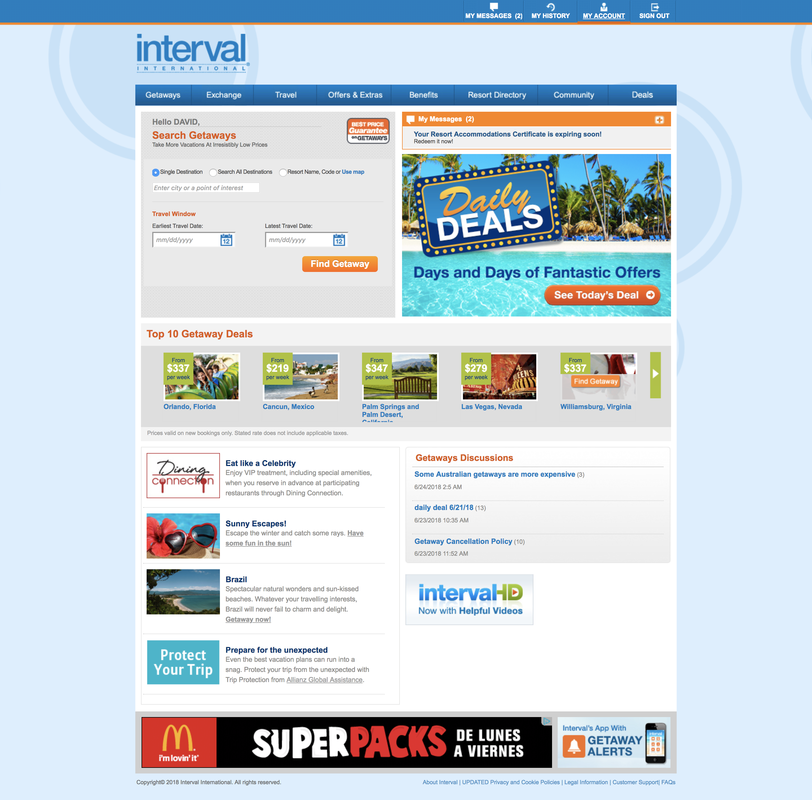

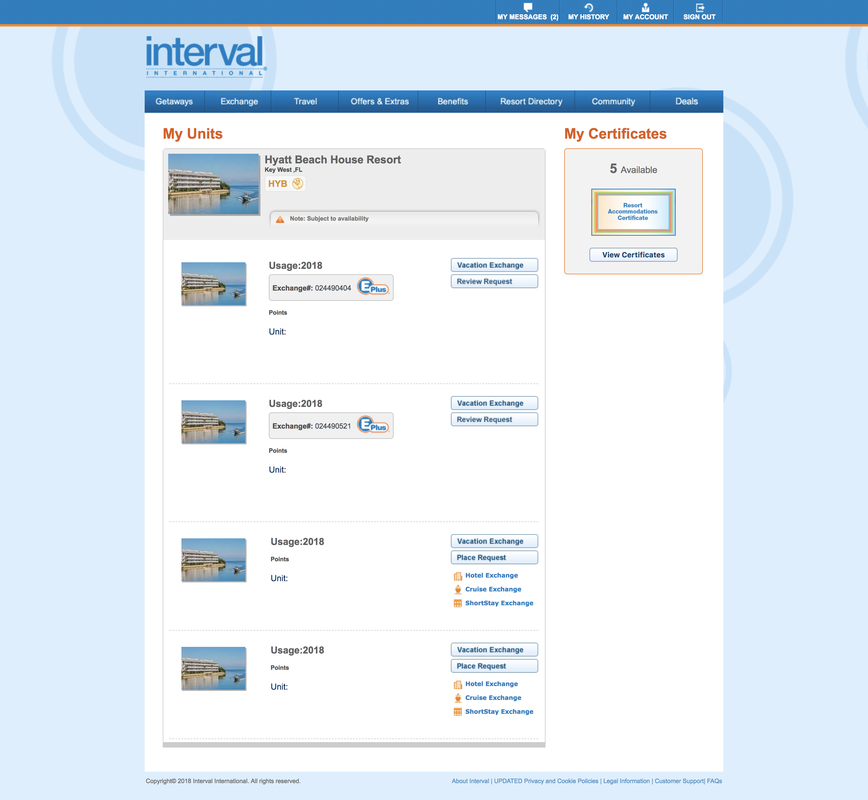
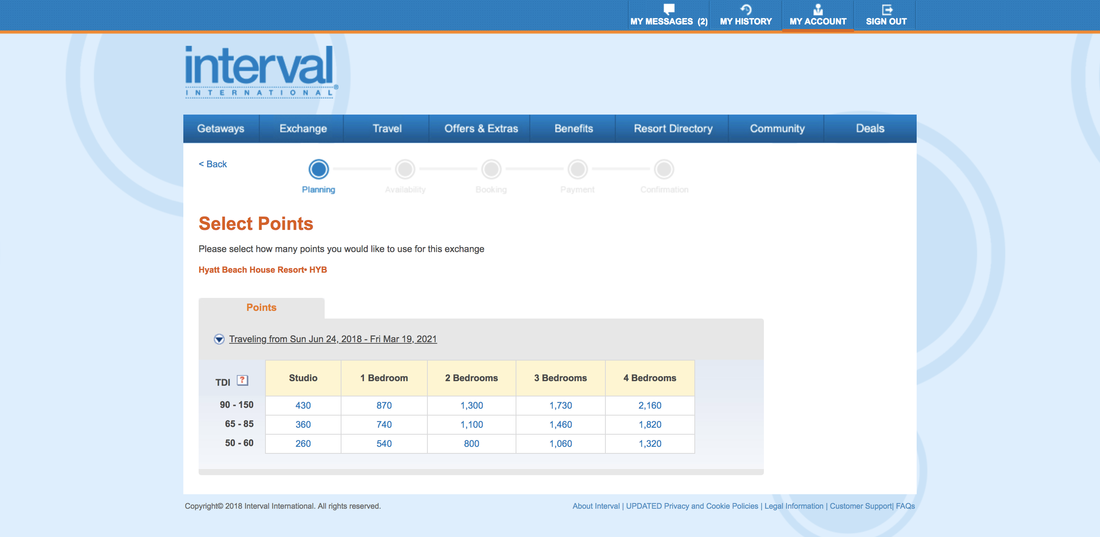
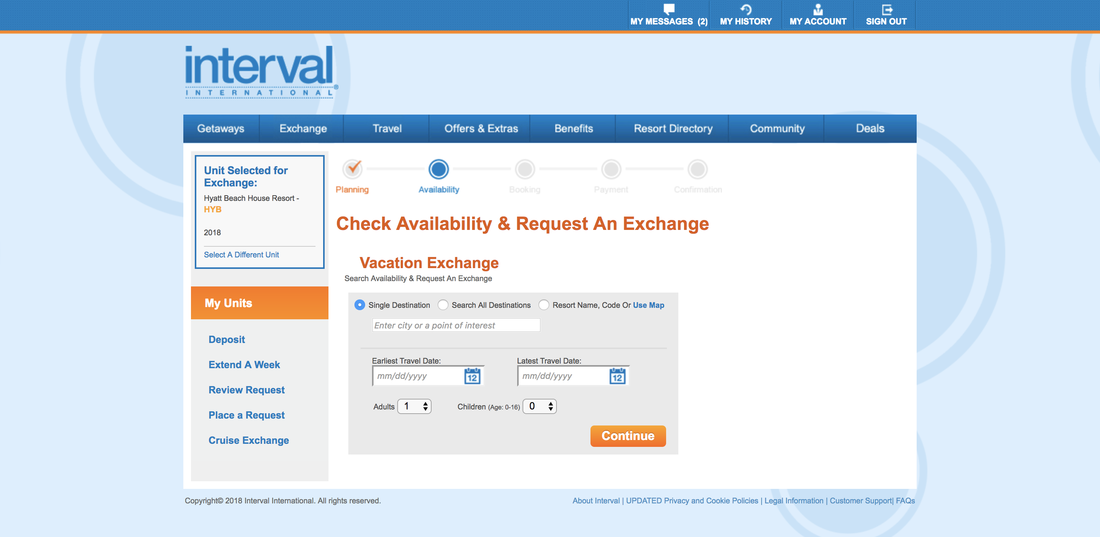
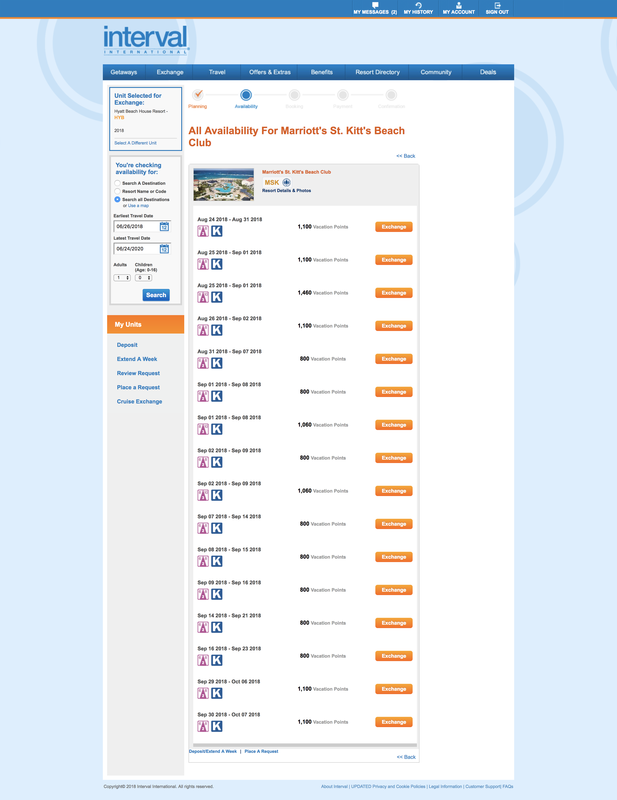
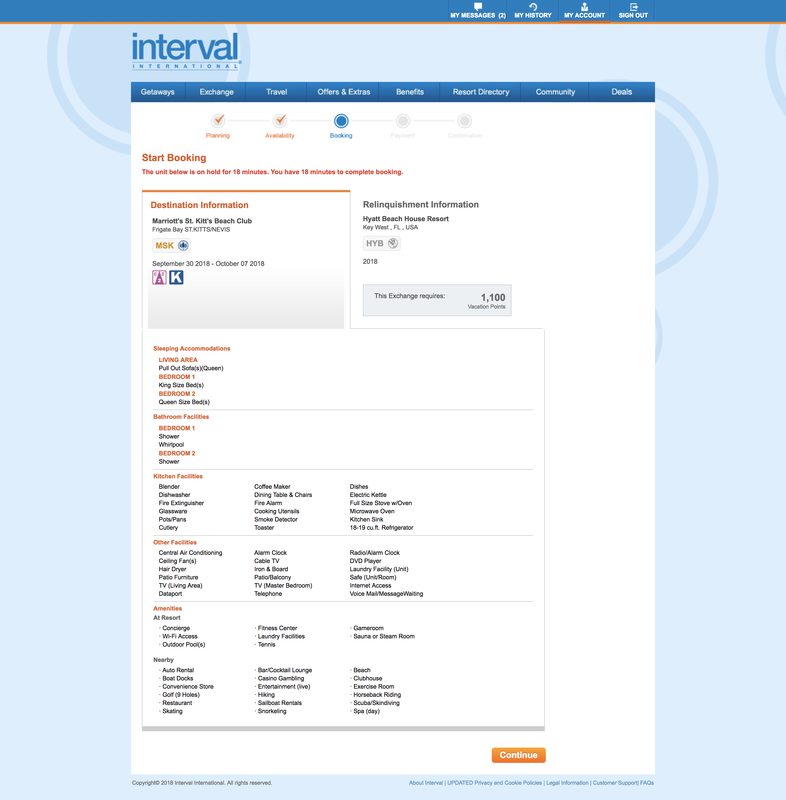
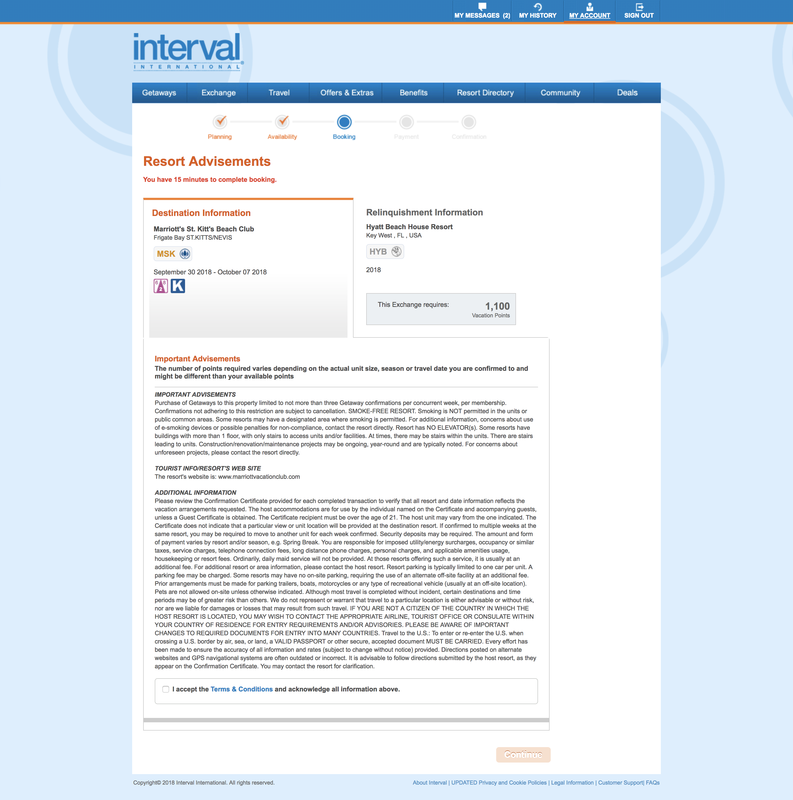


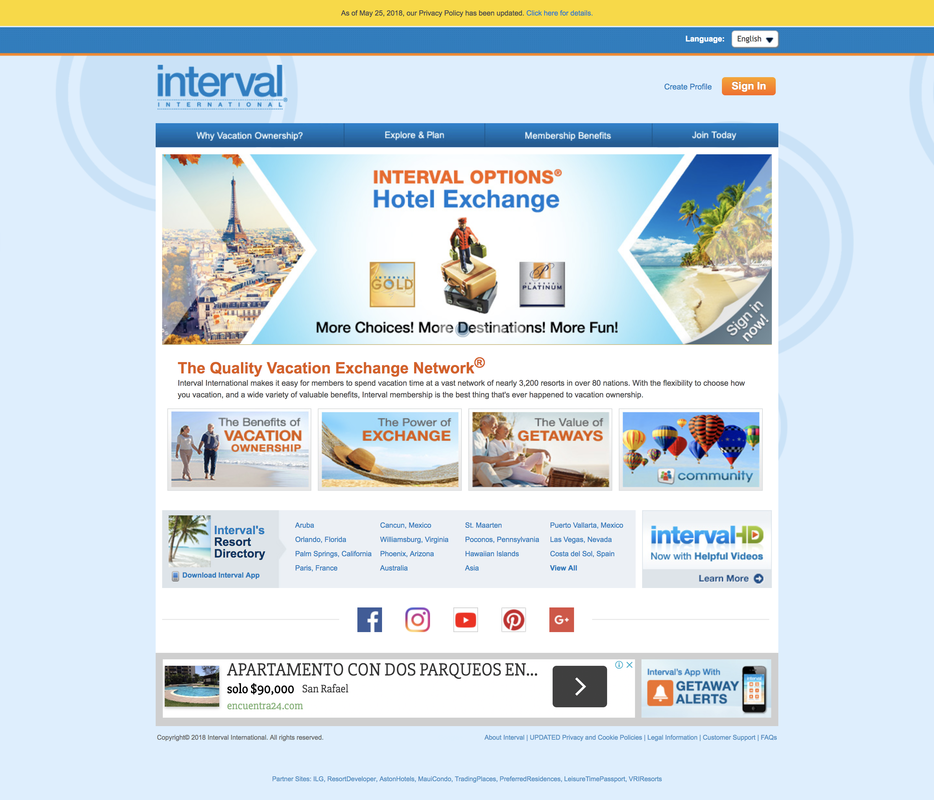
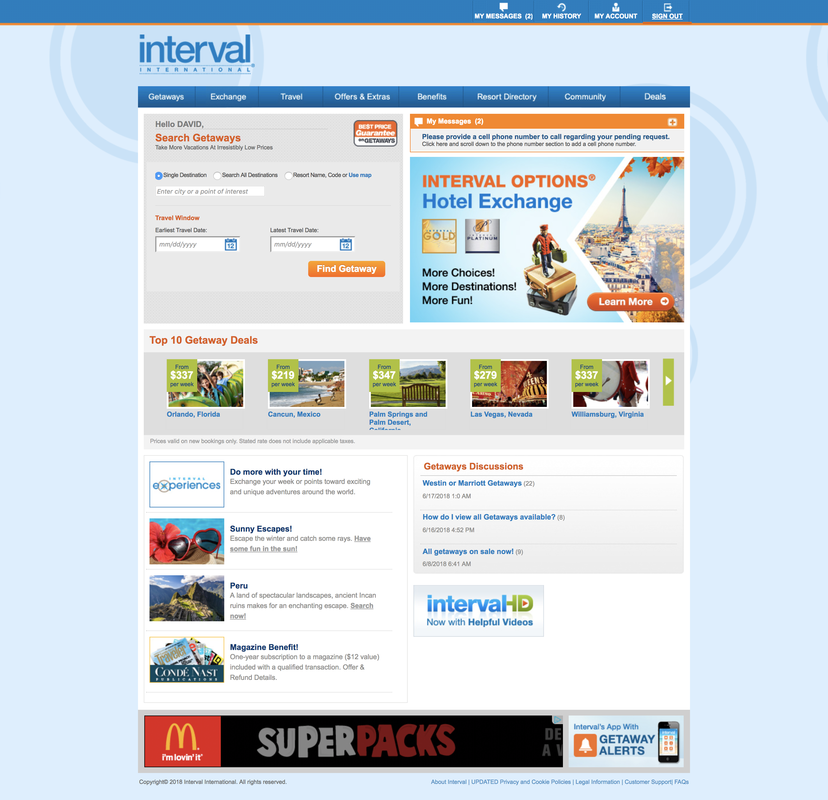
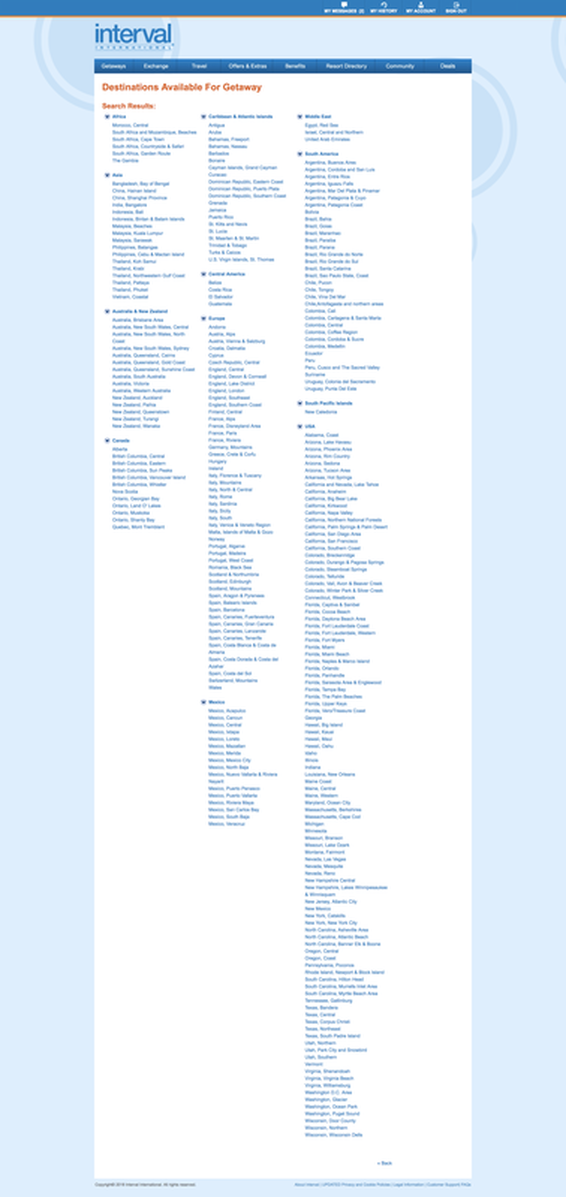
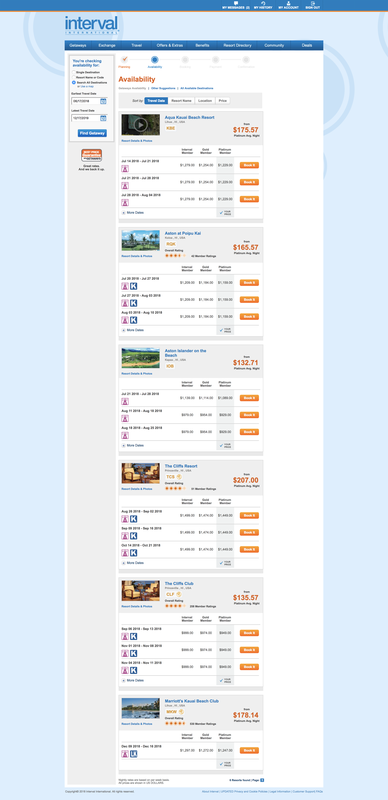
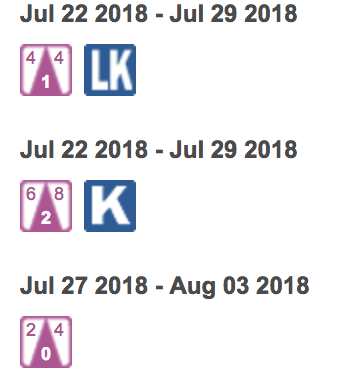
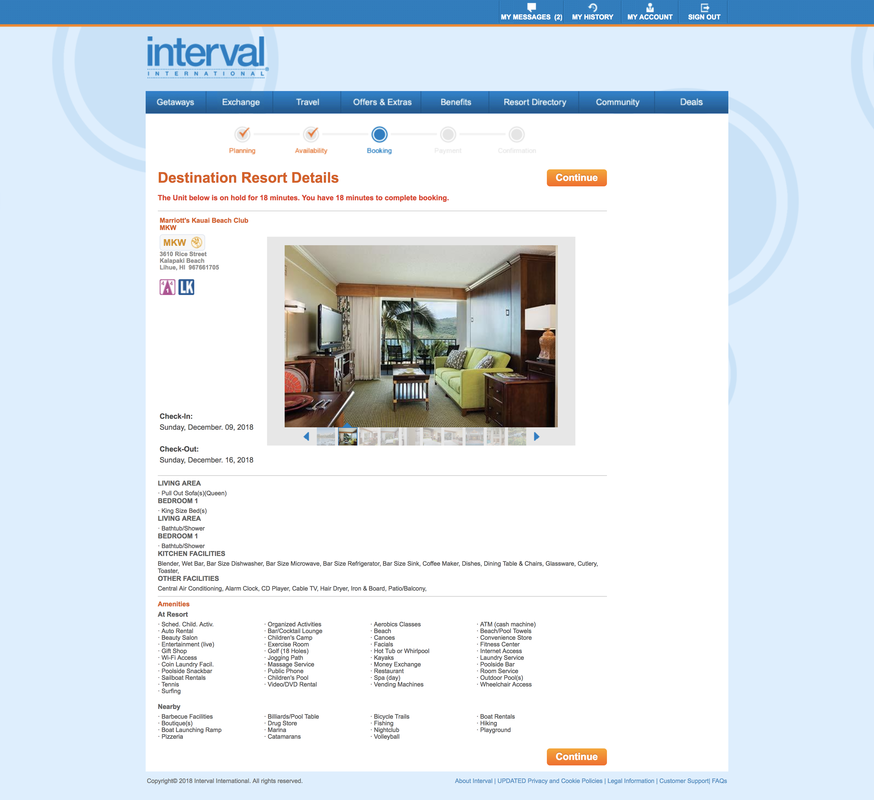
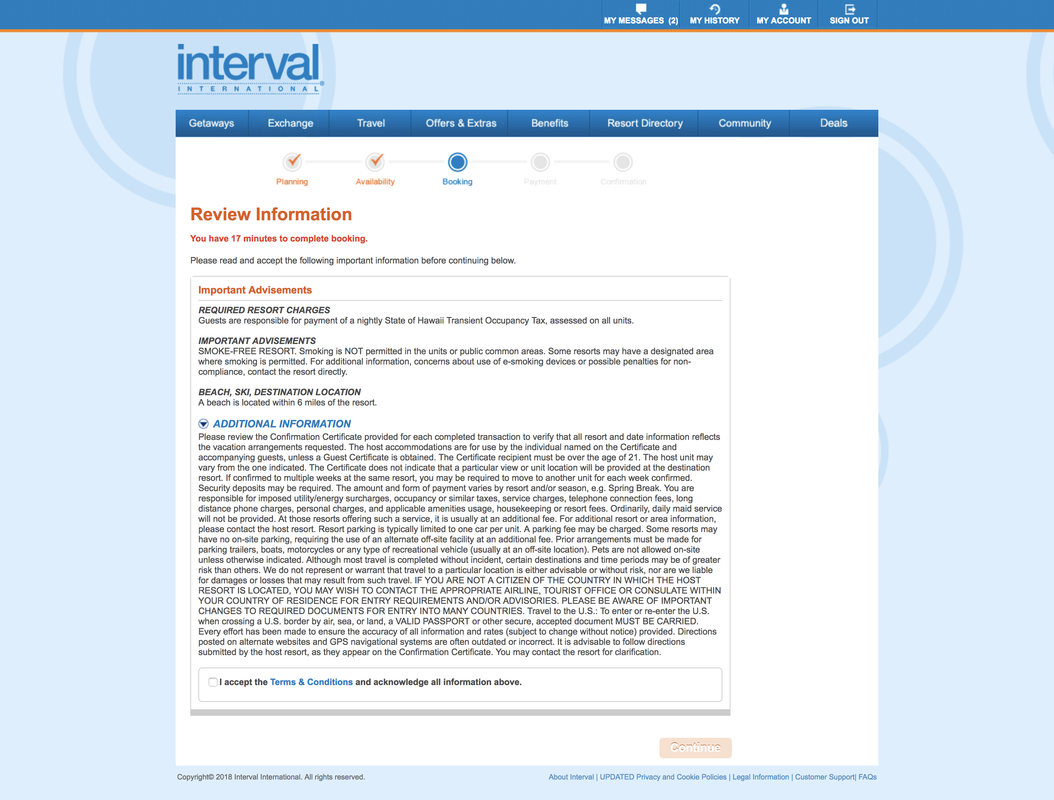
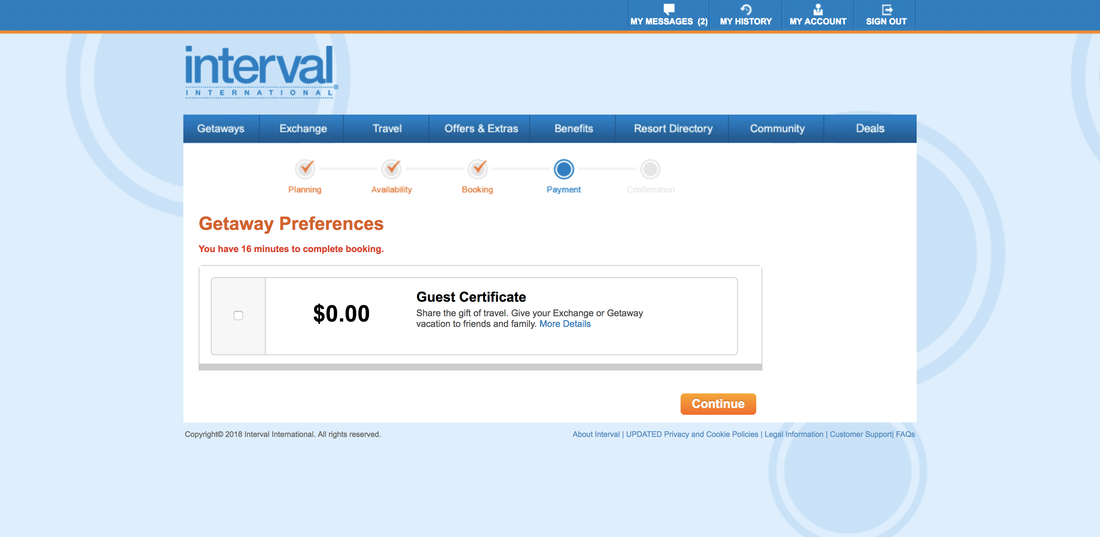
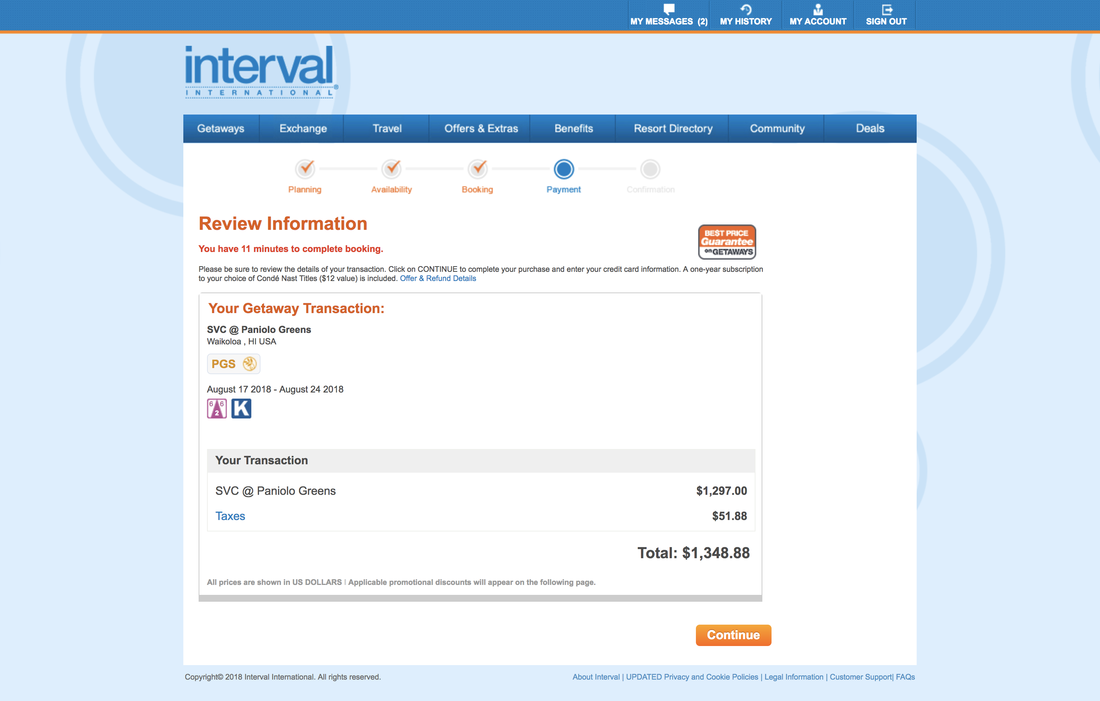
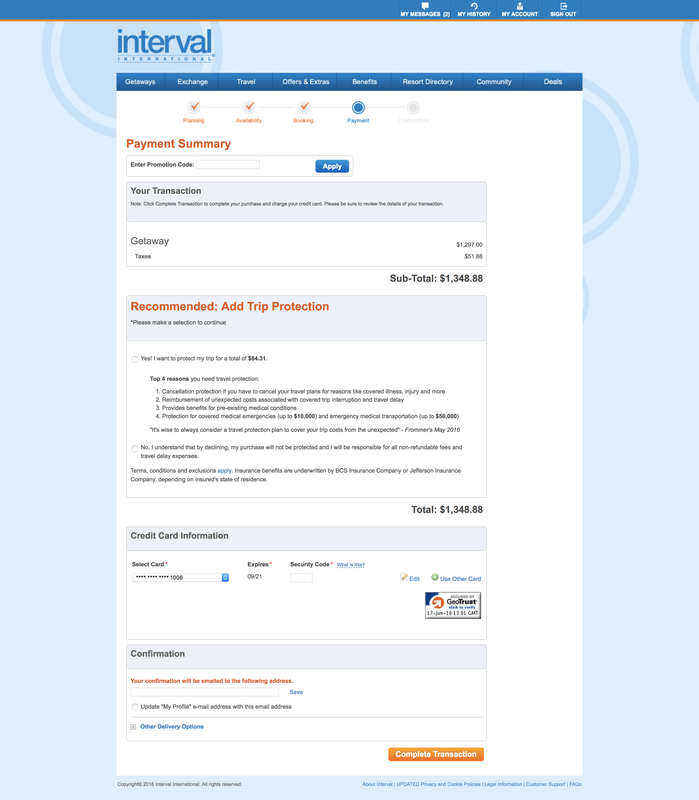




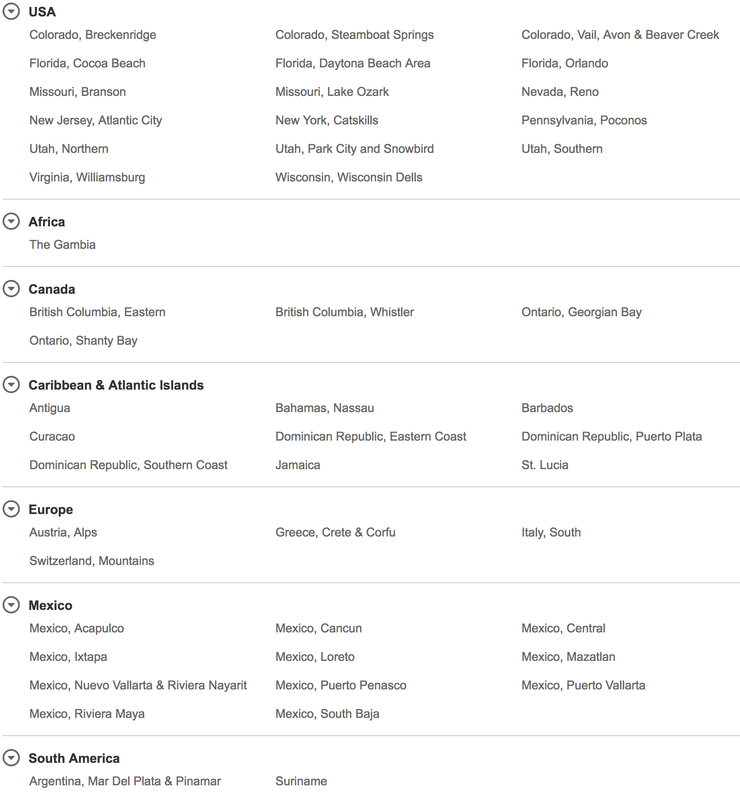
 RSS Feed
RSS Feed
